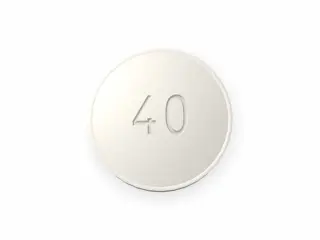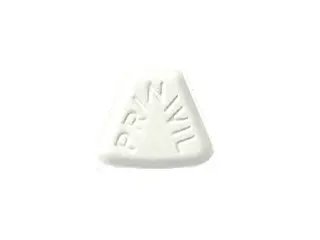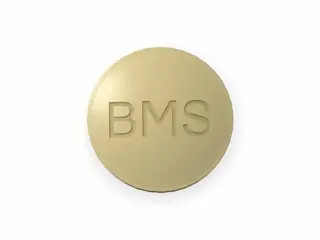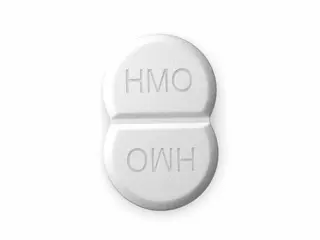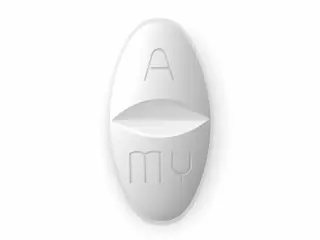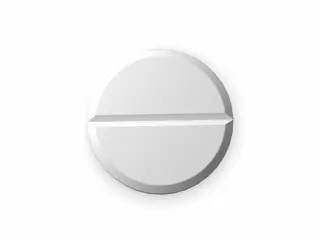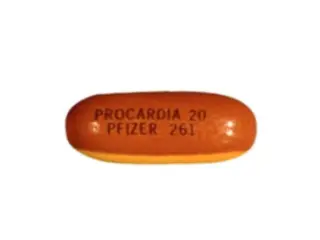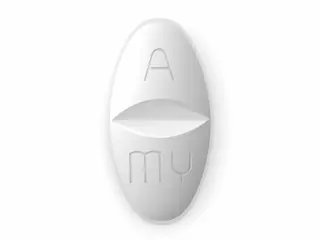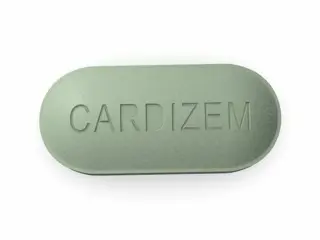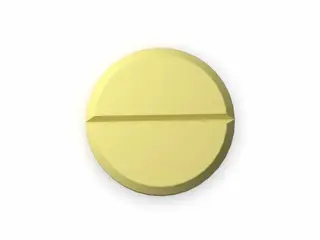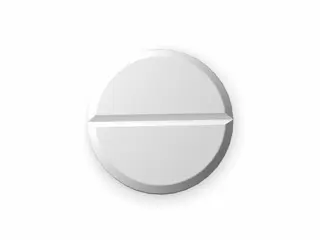Blood Pressure
Discover a wide range of reliable blood pressure monitors and related products to help you track and manage your health effectively. Shop now for accurate, easy-to-use devices and accessories designed to support your well-being.
Blood pressure management is crucial for maintaining overall cardiovascular health. High blood pressure, or hypertension, can lead to serious complications like heart attacks, strokes, and kidney failure. A wide range of medications is available to help control blood pressure. These drugs work through different mechanisms to lower pressure in the arteries, protect the heart, and prevent organ damage.
Aceon (perindopril) is an ACE inhibitor. It blocks enzymes that tighten blood vessels. This helps relax vessels and lower blood pressure. Patients often tolerate it well, with mild side effects like cough being common. Aceon also offers protection to the heart and kidneys, especially in diabetic patients.
Adalat (nifedipine) is a calcium channel blocker. It prevents calcium from entering the heart and blood vessel muscle cells. This widens arteries and reduces blood pressure. Adalat works quickly and is useful for patients needing rapid blood pressure control. It may cause flushes, headaches, or swelling in the ankles.
Aldactone (spironolactone) acts as a potassium-sparing diuretic. It reduces fluid buildup and keeps potassium levels balanced. Aldactone is especially helpful in resistant hypertension and heart failure cases. Side effects include increased urination and possible hormonal effects in some patients.
Altace (ramipril) is a popular ACE inhibitor with proven benefits in reducing heart attack risk. It works by relaxing blood vessels and lowering blood pressure. Altace is often prescribed for patients with heart disease or diabetes. Dry cough and dizziness are known side effects but are not common.
Avapro (irbesartan) belongs to the class of ARBs (angiotensin receptor blockers). It blocks receptors for angiotensin II, a substance that tightens blood vessels. Avapro thus helps to relax arteries and reduce pressure. It is also protective of kidneys, particularly in diabetic patients. Side effects are usually mild, including dizziness and fatigue.
Beloc (metoprolol) is a beta-blocker. It reduces heart rate and the workload on the heart, lowering blood pressure effectively. Beloc is usually used in patients with heart disease, including after heart attacks. It should be used cautiously in asthma patients as it may constrict airways.
Benicar (olmesartan) is another ARB with strong blood pressure-lowering properties. It prevents blood vessels from narrowing and lowers sodium retention. Benicar is known for a once-daily dosing and good tolerability. Side effects may include dizziness and gastrointestinal issues.
Calan and Calan SR (verapamil) are calcium channel blockers used to relax blood vessels and control heart rate. They are helpful not only for hypertension but also for certain types of arrhythmias. Extended-release versions like Calan SR provide steady blood levels and fewer side effects. Common side effects are constipation and swelling.
Cardizem and Cartia XT (diltiazem) are calcium channel blockers that reduce heart rate and dilate arteries. They are useful for angina and high blood pressure. These drugs often cause less swelling than other calcium blockers. Patients may notice headaches or lightheadedness early on.
Catapres and Clonidine lower blood pressure by acting on the central nervous system. They reduce nerve signals that cause blood vessels to constrict. Clonidine is effective but may cause sedation and dry mouth, requiring careful dosage management.
Combipres is a combination of clonidine and a diuretic. It combines effects to lower blood pressure through multiple pathways. Combipres is useful in resistant hypertension but may have the combined side effects of both components, including dizziness and increased urination.
Coreg (carvedilol) is a non-selective beta-blocker with additional alpha-blocking properties. It effectively reduces heart rate and dilates blood vessels. Coreg is widely used in heart failure and after heart attacks. Side effects can include fatigue and low blood pressure.
Coversyl (perindopril) shares many benefits with Aceon as an ACE inhibitor. It helps dilate vessels and reduce sodium retention. Coversyl is often prescribed for stroke prevention and heart disease. Cough may occur but is generally tolerable.
Cozaar (losartan) is a well-known ARB that blocks the angiotensin II receptor. It lowers blood pressure and protects kidney function. Cozaar is favored for its good side effect profile and once-daily dosing. Side effects may include dizziness and nasal congestion.
Diltiazem works similarly to Cardizem and Cartia XT. It relaxes arteries and reduces heart rate, making it useful for both hypertension and angina. Diltiazem causes fewer limb swelling problems compared to other calcium channel blockers.
Esidrix (hydrochlorothiazide) is a thiazide diuretic. It helps remove excess salt and water from the body, lowering blood pressure. Esidrix is often prescribed as a first-line therapy. Possible side effects include increased urination, low potassium, and muscle cramps.
Frumil combines furosemide and amiloride diuretics. It reduces fluid overload and supports blood pressure control. Frumil has a potent diuretic effect useful in edema and hypertension. Patients should monitor electrolyte levels during use.
Hytrin (terazosin) relaxes blood vessels by blocking alpha receptors. It also improves urinary flow in men with prostate enlargement. Hytrin lowers blood pressure and may cause dizziness, especially upon standing rapidly.
Hyzaar combines losartan and hydrochlorothiazide. This dual action lowers blood pressure effectively by blocking receptors and removing excess fluid. Hyzaar is popular for its once-daily dose and convenient treatment.
Inderal and Inderal LA (propranolol) are non-selective beta-blockers that reduce heart rate and output. They treat hypertension, angina, and certain arrhythmias. Inderal may worsen asthma due to airway constriction effects.
Isoptin and Isoptin SR (verapamil) are calcium channel blockers with good effects on blood pressure and heart rate. The SR (sustained release) version helps maintain steady drug levels. Typical side effects include constipation and swelling.
Lasix (furosemide) is a loop diuretic for rapid fluid and blood pressure reduction. It is useful in patients with edema or severe hypertension. Frequent urination and electrolyte imbalance are common concerns.
Lisinopril is a widely prescribed ACE inhibitor that lowers blood pressure and protects the kidneys. It is favored due to once-daily dosing and effectiveness. Some patients may experience a persistent dry cough.
Lopressor (metoprolol) selectively blocks beta-1 receptors in the heart. It lowers heart rate and blood pressure without significant effects on lungs. Lopressor is preferred in patients with mild asthma.
Lozol (indapamide) is a thiazide-like diuretic that removes excess salt and fluid. It prolongs blood pressure control and reduces cardiovascular risks. Lozol is well tolerated with minimal impact on blood sugar or lipids.
Micardis (telmisartan) is an ARB that effectively lowers blood pressure and offers kidney protection. It has a long half-life allowing once-daily dosing. Side effects are rare but may include dizziness or fatigue.
Microzide (hydrochlorothiazide) is a thiazide diuretic widely used in hypertension. It decreases plasma volume and resistance in blood vessels. Possible side effects include low potassium and increased urination.
Minipress (prazosin) is an alpha-1 blocker that relaxes blood vessels. It also improves urinary symptoms in men. It may cause dizziness or fainting, especially after the first dose.
Norvasc (amlodipine) is a long-acting calcium channel blocker. It dilates arteries and reduces workload on the heart. Norvasc is well tolerated and can be used alone or in combination. Swelling and flushing may occur.
Prinivil (lisinopril) shares the benefits of lisinopril with excellent blood pressure control and organ protection. It is often used in post-heart attack and heart failure patients. Side effects include dry cough and rare allergic reactions.
Procardia (nifedipine) is a short-acting calcium channel blocker that lowers blood pressure quickly. It is effective but may cause reflex tachycardia and headaches. Extended-release forms reduce side effects.
Tenormin (atenolol) selectively blocks beta-1 receptors in the heart. It reduces heart rate and blood pressure effectively. Tenormin is used post-heart attack and in chronic hypertension. Fatigue and cold extremities are possible side effects.
Toprol and Toprol XL (metoprolol) are cardio-selective beta-blockers. The XL version allows once-daily dosing with steady blood levels. They are effective for hypertension, angina, and heart failure.
Trandate (labetalol) is a combined alpha and beta-blocker. It lowers blood pressure by relaxing vessels and reducing heart rate. Trandate is used in acute hypertension and pregnancy-related hypertension. Side effects include dizziness and fatigue.
Tritace (ramipril) is an ACE inhibitor with protective effects on the heart and kidneys. It improves survival after heart attacks and in heart failure. Patients may experience a dry cough or lightheadedness at the start.
Vasotec (enalapril) is an ACE inhibitor used widely for blood pressure and heart failure management. Its benefits include reducing strain on the heart and protecting kidneys. Mild cough and dizziness are common side effects.
Verampil and Verapamil are calcium channel blockers effective in lowering blood pressure and controlling arrhythmias. They reduce heart workload and dilate arteries. Side effects can include constipation and edema.
Zebeta (bisoprolol) is a cardio-selective beta-blocker. It lowers heart rate and blood pressure. Zebeta is effective in treating hypertension and chronic heart failure. Side effects tend to be mild.
Zestoretic combines lisinopril and hydrochlorothiazide. This combination offers improved blood pressure control by acting on two pathways. Common side effects include lightheadedness and increased urination.
Zestril (lisinopril) is another form of lisinopril used for hypertension and heart failure. It prevents blood vessel constriction, lowering pressure. It is well tolerated with a possible dry cough.
Choosing a blood pressure medication depends on individual health conditions and possible side effects. Many patients require a combination of drugs for effective control. Monitoring and regular check-ups are crucial for safe and successful treatment.




